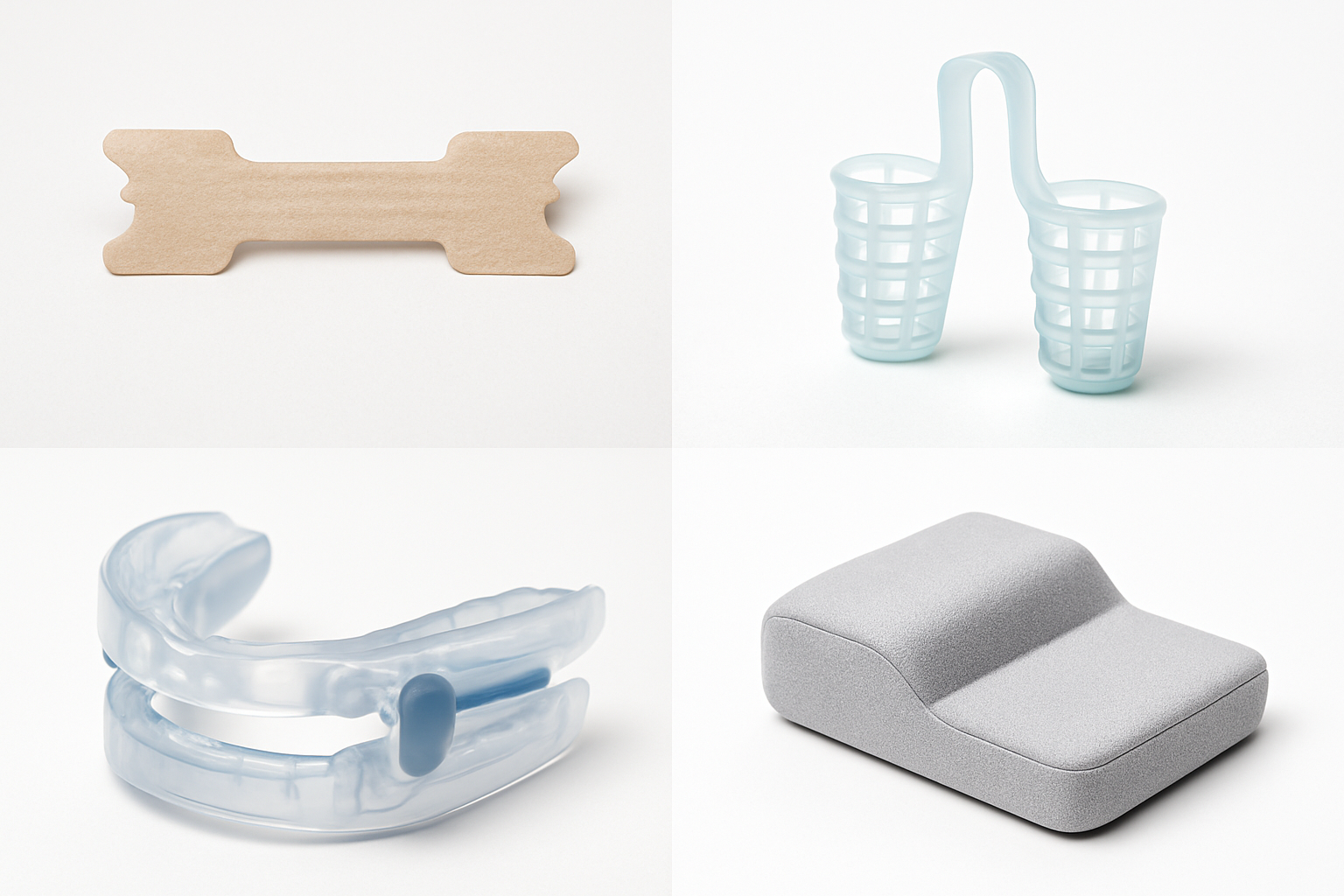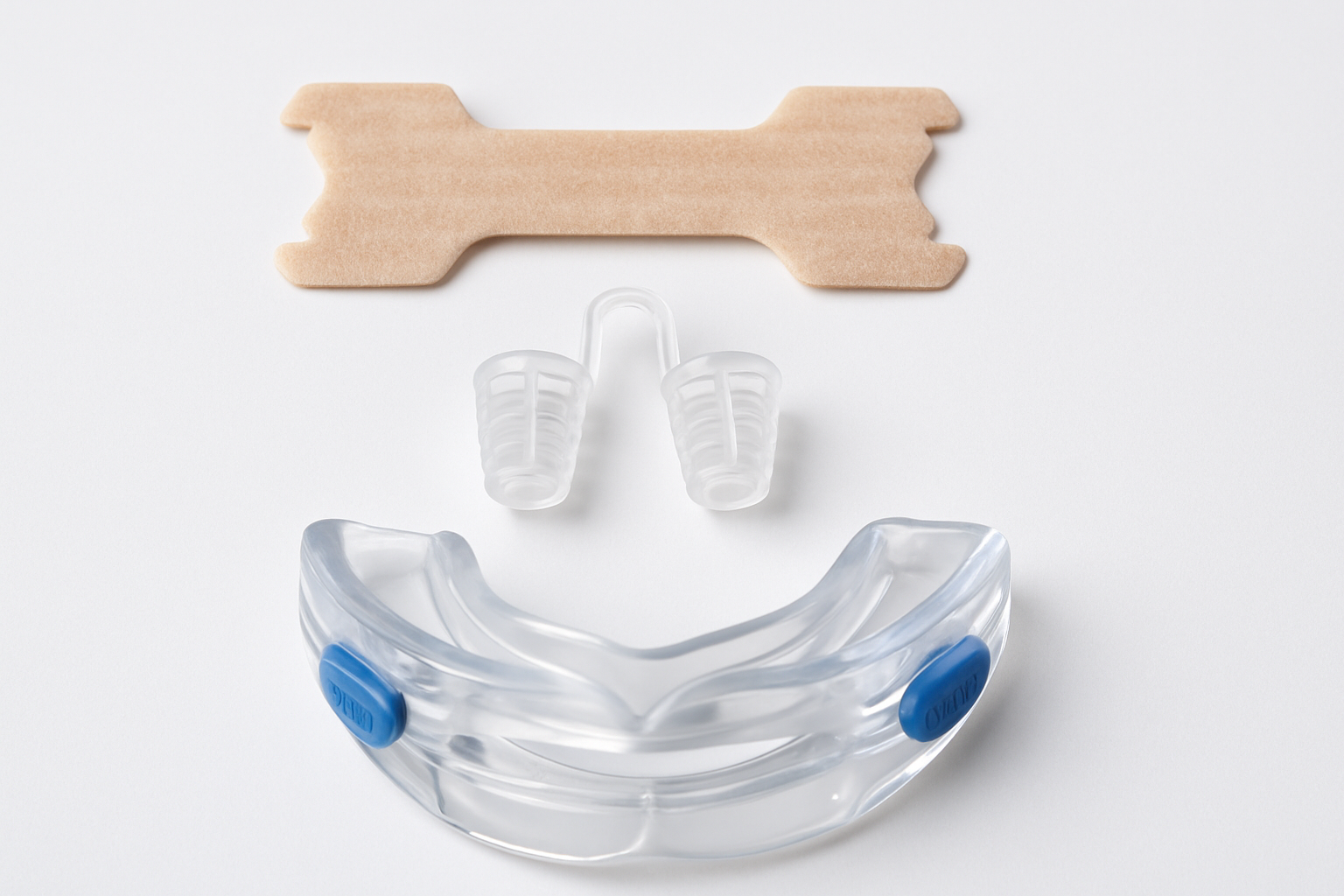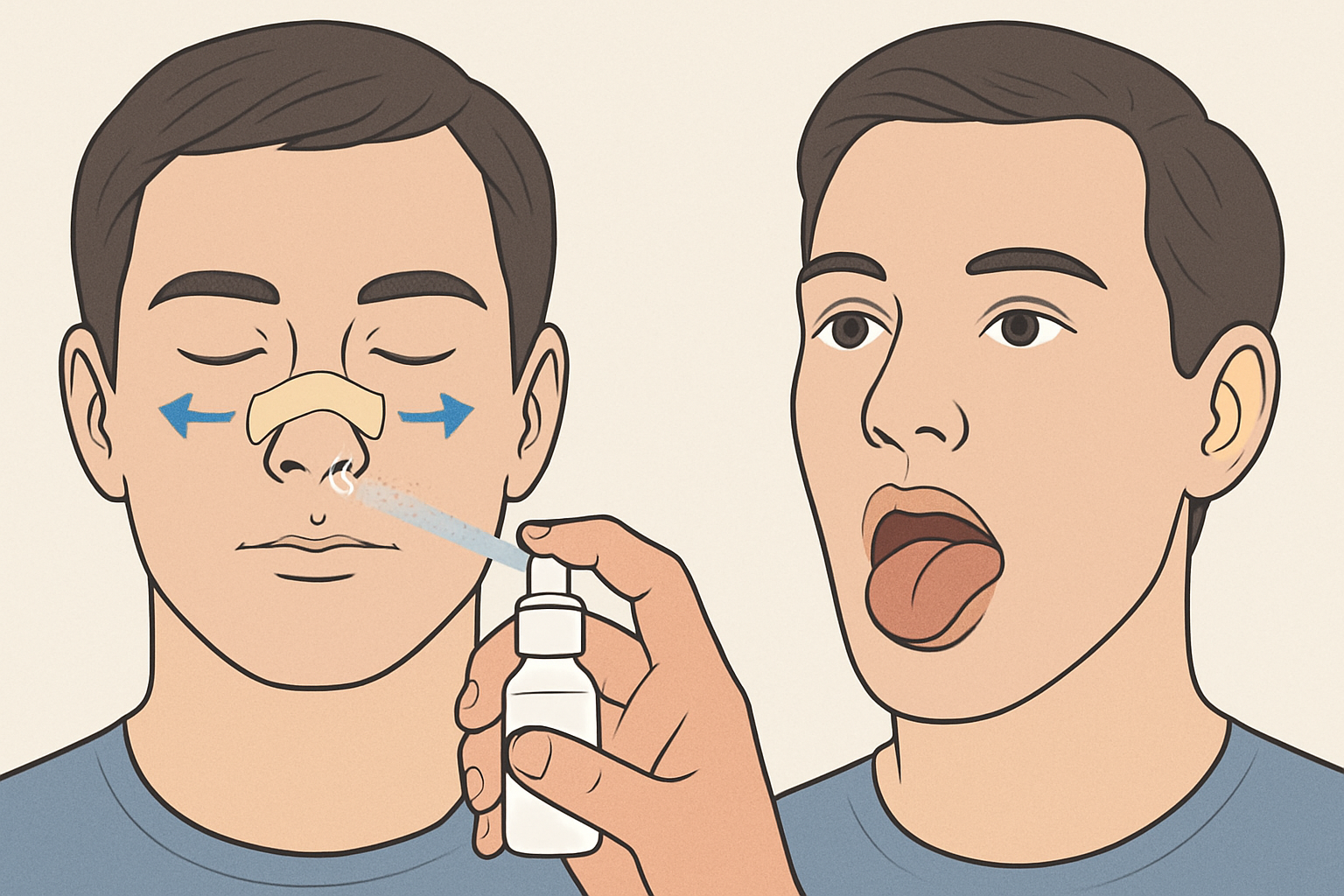
Medical Disclaimer: This article provides educational information about snoring solutions. Always consult with healthcare professionals for proper diagnosis and treatment of medical conditions.
Snoring affects millions of people worldwide, disrupting sleep for both the snorer and their bed partner. While often dismissed as a mere annoyance, snoring can be a sign of underlying health issues, particularly Obstructive Sleep Apnea (OSA). Fortunately, there are numerous effective solutions available to address snoring problems and improve sleep quality.
This comprehensive guide explores the various causes of snoring and presents a complete range of solutions, from simple lifestyle changes to medical interventions, helping you find the most effective approach for your specific situation.
Understanding the Causes of Snoring
Snoring occurs when the flow of air through the mouth and nose is partially obstructed during sleep, causing the soft tissues in the throat to vibrate. Understanding the underlying causes is crucial for selecting the most appropriate treatment.
Common Causes of Snoring:
- Anatomical Factors: Enlarged tonsils, adenoids, or a long soft palate
- Nasal Problems: Chronic congestion, deviated septum, or nasal polyps
- Sleep Position: Sleeping on the back allows gravity to pull tissues backward
- Obesity: Excess weight around the neck compresses the airway
- Alcohol and Sedatives: Relax throat muscles, increasing obstruction
- Age: Muscle tone decreases with age, leading to more tissue collapse
Lifestyle-Based Solutions
Many snoring problems can be significantly improved or resolved through lifestyle modifications.
1. Sleep Position Changes

Changing your sleep position is one of the simplest and most effective ways to reduce snoring.
Positional Solutions:
- Side Sleeping: Prevents the tongue and soft palate from falling backward
- Elevated Head: Raising the head of the bed by 4-6 inches
- Body Pillows: Help maintain side sleeping position
- Positional Therapy Devices: Special pillows or devices that encourage side sleeping
2. Weight Management
Excess weight, particularly around the neck, is a major contributor to snoring.
Weight Loss Benefits:
- Reduces fat deposits around the airway
- Improves overall sleep quality
- May completely eliminate snoring in some cases
- Reduces risk of sleep apnea
3. Avoiding Alcohol and Sedatives
These substances relax the muscles in the throat, making snoring worse.
Medical and Device-Based Solutions
When lifestyle changes aren't sufficient, various medical treatments and devices can provide effective relief.
1. Oral Appliances

Oral appliances are custom-fitted devices that reposition the jaw and tongue to keep the airway open.
Types of Oral Appliances:
- Mandibular Advancement Devices (MADs): Move the lower jaw forward
- Tongue Retaining Devices: Hold the tongue in a forward position
- Palatal Lifting Devices: Lift the soft palate
2. Nasal Solutions
Addressing nasal obstruction can significantly reduce snoring.
Nasal Treatment Options:
- Nasal Strips: Widen the nostrils to improve airflow
- Nasal Dilators: Keep nasal passages open
- Saline Sprays: Reduce congestion and inflammation
- Nasal Surgery: Correct structural problems like deviated septum
3. CPAP Therapy
For severe snoring or sleep apnea, Continuous Positive Airway Pressure (CPAP) therapy may be recommended.
CPAP Benefits:
- Most effective treatment for sleep apnea
- Eliminates snoring completely
- Improves oxygen levels during sleep
- Reduces daytime sleepiness
Surgical Options
Surgical interventions can be effective for specific anatomical issues causing snoring.
1. Uvulopalatopharyngoplasty (UPPP)
This procedure removes excess tissue from the throat to widen the airway.
UPPP Considerations:
- Removes uvula and part of soft palate
- May also remove tonsils if enlarged
- Requires general anesthesia
- Recovery period of 1-2 weeks
2. Laser-Assisted Uvulopalatoplasty (LAUP)
A less invasive procedure using laser technology to reduce tissue volume.
LAUP Advantages:
- Less invasive than traditional surgery
- Can be performed in office setting
- Shorter recovery time
- May require multiple treatments
3. Radiofrequency Ablation
Uses radiofrequency energy to shrink tissue in the soft palate and tongue.
Radiofrequency Benefits:
- Minimally invasive procedure
- Local anesthesia only
- Quick recovery time
- Can be repeated if needed
Alternative and Complementary Therapies
Some individuals find relief through alternative approaches, though evidence varies for their effectiveness.
1. Throat and Tongue Exercises

Strengthening the muscles in the throat and tongue can help reduce snoring.
Exercise Examples:
- Repeating vowel sounds loudly for 3 minutes daily
- Sliding the tongue backward along the roof of the mouth
- Pressing the tongue against the roof of the mouth
- Singing exercises to strengthen throat muscles
2. Acupuncture and Acupressure
Some studies suggest these therapies may help with snoring and sleep quality.
Potential Benefits:
- May improve sleep quality
- Could reduce stress and tension
- May help with weight management
- Generally safe when performed by qualified practitioners
Choosing the Right Solution
Selecting the most appropriate snoring solution depends on several factors.
Factors to Consider:
- Severity: Mild, moderate, or severe snoring
- Underlying Cause: Anatomical, lifestyle, or medical factors
- Comfort Level: Willingness to use devices or undergo procedures
- Cost: Budget considerations for treatments
- Medical History: Existing conditions that may affect treatment choice
When to Seek Medical Attention
It's important to know when snoring requires medical evaluation.
Prevention Strategies
Preventing snoring is often easier than treating it once it becomes established.
Prevention Tips:
- Maintain a healthy weight
- Establish good sleep habits
- Avoid alcohol before bedtime
- Treat nasal congestion promptly
- Sleep on your side
- Keep the bedroom cool and humidified
Conclusion
Snoring is a common but treatable condition that can significantly impact sleep quality and overall health. By understanding the underlying causes and exploring the various treatment options available, individuals can find effective solutions that work for their specific situation.
Whether through simple lifestyle changes, medical devices, or surgical interventions, there are numerous ways to achieve quieter, more restful sleep. The key is to work with healthcare professionals to develop a personalized treatment plan that addresses the root causes of your snoring and fits your lifestyle and preferences.
← Back to Sleep Topics